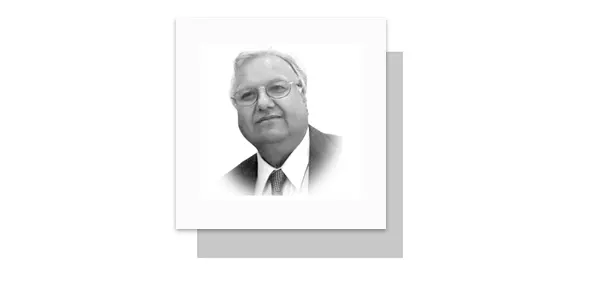I intend to talk about olives, speak to Prime Minister Shehbaz Sharif, and discuss a positive opportunity for the national economy. However, there is another mention to be made first. There was a man named Dr. Fayyaz Alam Siddiqui. His parents recognized his intelligence early on; he always performed well academically. This was a time when, if a child was asked what they wanted to be when they grew up, they would quickly answer, “a doctor.” During that era, when elders like Ghulam Sarwar Khan hadn’t yet tarnished the reputation of aviation, becoming a pilot was also seen as a noble aspiration. Many children dreamed of flying planes. In those good times, recognizing his talent and intelligence, Fayyaz Alam was admitted to medical college.
Fayyaz Alam is a graduate of Sindh Medical College, where he was actively involved in extracurricular activities as well as student politics. I don’t have much information about his activities after completing his education, but his name resurfaced when the late Naimatullah Khan became the Mayor of Karachi. Naimatullah Khan needed a hardworking and honest young person to oversee the health department, and thus Fayyaz Alam came to his attention. This was how, after a long time, I learned about him again. During that period, he established and successfully managed several impressive hospitals under the Karachi Municipal Corporation. I don’t have much information about what happened after Naimatullah Khan’s tenure as mayor, but it seems that it was due to him that Dr. Fayyaz Alam became involved in projects in rural Sindh, particularly in the Thar region, where Khan Sahib used to dig wells for drinking water. Perhaps it was during this time that Dr. Fayyaz Alam developed an interest in tree planting, particularly in afforestation projects that could purify the environment and contribute to economic stability.
How many pieces his heart broke into in this love, he would know best, but I must mention one of his discoveries. This discovery is the wild olive tree of Pakistan, often referred to as wild olive. According to Dr. Fayyaz Alam’s research, this tree is found in every region of Pakistan and grows naturally. Every year, thousands of tons of olives are produced on these trees, which are either eaten by sheep and goats or simply go to waste. Out of his newfound passion, he traveled across the country, sometimes alone and sometimes with his dear friend Sohail Jamali, because in our profession, he only trusts Sohail Jamali.
I hear that with Sohail’s help, he also published a book on the subject, which experts in the relevant field consider to be quite important and useful. This could well be the case, but this can only be confirmed if the book is available. Anyway, the point is that he has discovered valuable, useful and beneficial olive trees across Pakistan and, after many years of continuous research, has proven that the olives produced by these trees can yield high-quality oil comparable to the expensive foreign oils we import. Not only has he discovered these trees, but he has also launched a vigorous campaign for their cultivation.
His research indicates that there are around 85 million wild olive trees in the country. He says that even if we reduce this number and assume there are 50 million trees, each tree can produce at least 5 kilograms of oil. By this calculation, 250 million liters of oil can be easily obtained. This is the minimum estimate. In reality, Pakistan has the potential to produce 400 to 450 million liters of olive oil. According to his estimate, we could produce oil worth 250 billion rupees, and based on realistic estimates, we could produce oil worth 400 to 450 billion rupees. If the government pays attention to this matter, the truth is that we could even export this vast amount of oil, or at least save that much foreign exchange.
Pakistan is currently facing a financial crisis. The government is making every effort to tackle this crisis. Prime Minister Shehbaz Sharif has worked very hard in this regard. Shehbaz Sharif likes unique ideas and believes in turning them into reality. If he focuses on this project, I believe our economy could receive a significant boost. My suggestion is to develop a comprehensive policy for olive production and oil extraction. Dr. Fayyaz Alam Siddiqui has worked with great sincerity and diligence in this sector. His assistance, along with that of some bureaucrats who have already been involved and yielded positive results, could be invaluable in formulating this policy. Some time ago, he brought this matter to the attention of a senior bureaucrat, Captain Mahmood. Following Dr. Fayyaz’s suggestion, Captain Mahmood sent olive oil extraction machines to Balochistan for a trial run, and the results were excellent. Why can’t this experiment be expanded nationwide to stabilize the national economy?
—This writer is former advisor to the president of Pakistan, author & mass media theorist.
(farooq.adilbhuta@gmail,com)









